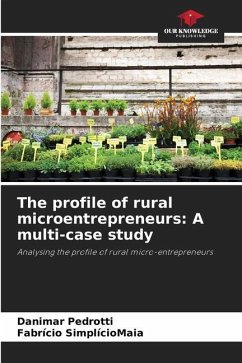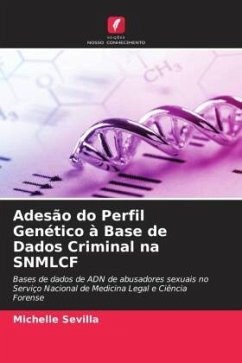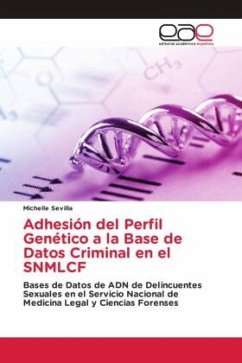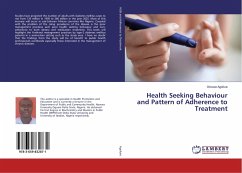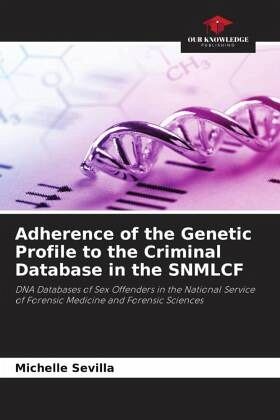
Adherence of the Genetic Profile to the Criminal Database in the SNMLCF
DNA Databases of Sex Offenders in the National Service of Forensic Medicine and Forensic Sciences
Versandkostenfrei!
Versandfertig in 6-10 Tagen
40,99 €
inkl. MwSt.

PAYBACK Punkte
20 °P sammeln!
The crimes of sexual aggressions and the lack of legislation that allows the creation of a DNA database containing the genetic profiles of these crimes constitute a problem and a threat, not only for the security of the city of Quito, but also a latent risk to the citizen security of the entire country. The present research is focused on analyzing the different regulations, as far as the creation of criminal DNA databases is concerned, of countries outside our country in order to establish the feasibility of the adhesion of the genetic profile of sex offenders in the Criminal Database of the N...
The crimes of sexual aggressions and the lack of legislation that allows the creation of a DNA database containing the genetic profiles of these crimes constitute a problem and a threat, not only for the security of the city of Quito, but also a latent risk to the citizen security of the entire country. The present research is focused on analyzing the different regulations, as far as the creation of criminal DNA databases is concerned, of countries outside our country in order to establish the feasibility of the adhesion of the genetic profile of sex offenders in the Criminal Database of the National Service of Legal Medicine and Forensic Sciences for their identification, Starting from exploratory, descriptive and explanatory research, taking into account the historical-logical, systematic, hermeneutic and analogical-comparative methods, to determine the imperative need to promote laws that help the creation of this database to identify sex offenders in a more effective way and thus improve the administration of justice in the country.



